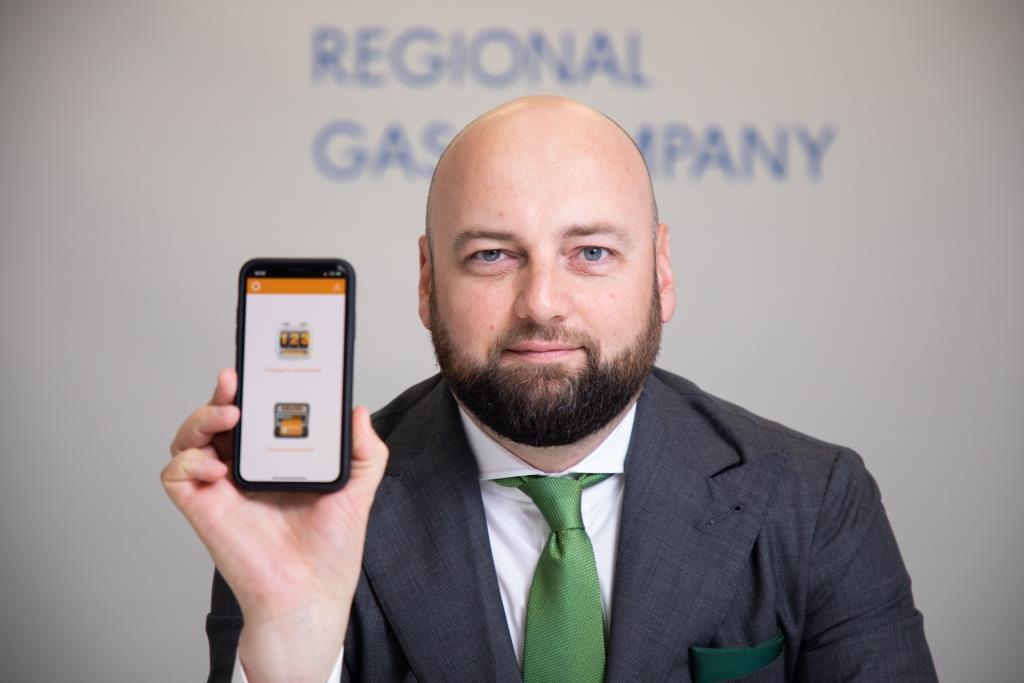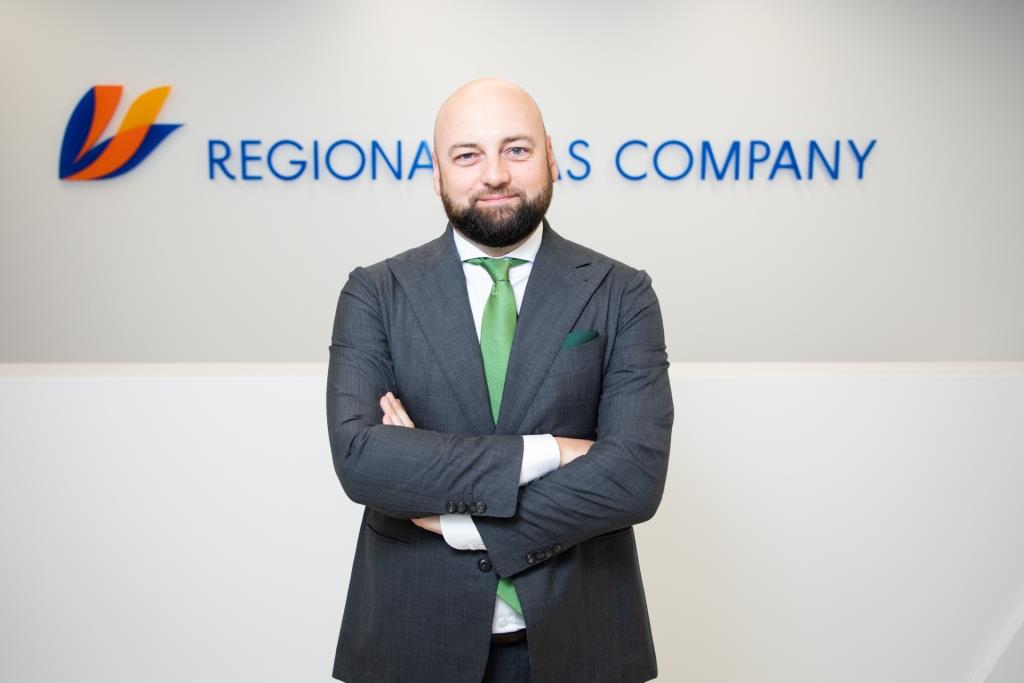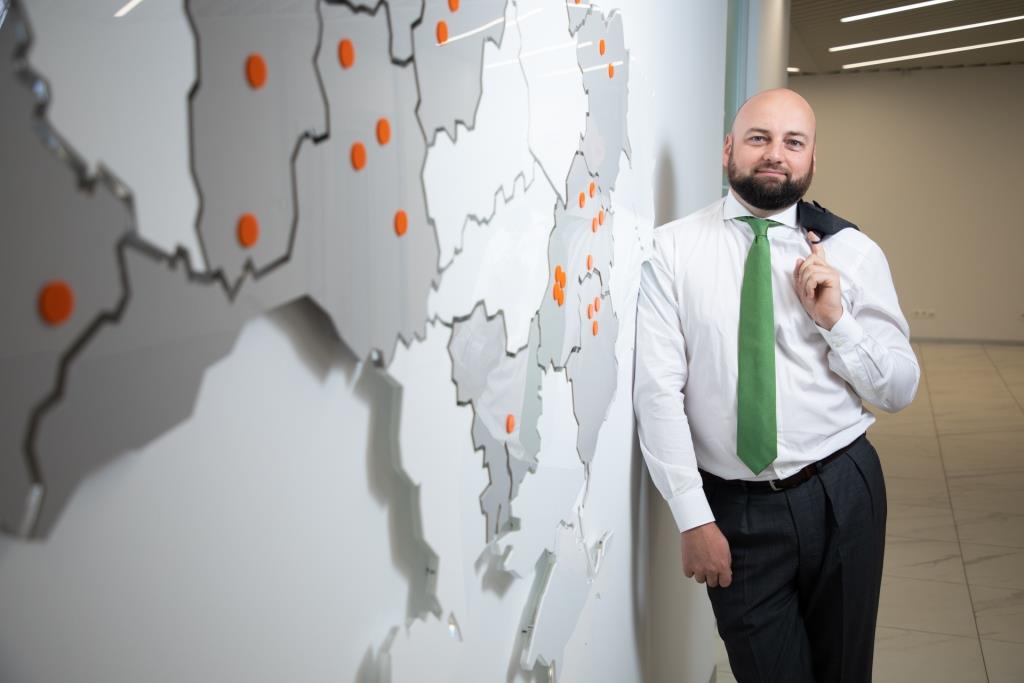
|
Group DF - international group of the companies, major investments are concentrated in the nitrogen, titanium and gas businesses. |
|
27 November 2019 Oleg Nikonorov: “We want to provide the best service in Ukraine”The Ukrainian gas market – one of Europe’s biggest – is going through fundamental changes. Communications are moving online and the range of services provided is constantly expanding. Regional Gas Company director Oleg Nikonorov tells us how the company became one of Ukraine’s main “game changers” by embracing a modern approach and focusing on the quality of its services. Digital communication channels open up new opportunities to connect with customers and offer additional services. The Regional Gas Company is a pioneer in using such channels in Ukraine. How did this whole story start? By 2015 it was clear the Ukrainian gas market was ripe for change, mainly due to increased competition between suppliers and rising consumer expectations. In Europe people choose their gas supplier not just based on price, but also the range and quality of services they provide.
 Ukraine is now on a similar path and companies that put service first will come out on top. There isn’t much companies can do to differentiate themselves in terms of the product – natural gas – they supply. The only way to build and grow your customer base is through additional services. But gas is not the same as, say, mobile services. Price is a key selling point for consumers and the market remains highly regulated. Sooner or later the gas market will open up. We expected this to happen as soon as 2017. It is about 30% open now – and this small segment has some 500 suppliers locked in a fight to the death for every last dollar. The household segment is next in line to be liberalised. People can already pick their gas supplier, but few use this option because of regulated pricing. As soon as these barriers fall, real competition will begin. We have been preparing for this since 2015. We compare ourselves to mobile operators, not other utility providers. We look at how they bundle offers and provide additional services. That’s what a developed utility market should look like – clients want a range of different services. In this sense, gas is no different from mobile communications – it’s the same philosophy. What opportunities do RGC digital services offer to consumers? In 2015 we began to substantially expand our network of Customer Service Centers and our range of services grew significantly. Consumer can now analyze their gas usage online and purchase gas a month in advance, or even until the end of winter. They can receive advice on how to manage consumption and much more. At the service centers themselves, everything is done to maximize customer convenience: from friendly staff and an electronic queue to comfortable sofas for in-person visits and coolers with free water. Within a year or two, such centers will appear in all cities with more than several tens of thousands of customers. But our goal is to move as much communication as possible online. We’re also making sure customers benefit from a variety of modern solutions, such as instant messenger chatbots, mobile apps and personal cabinets.
 Next comes the RGC Smart project, which is now in its final stage of development. It will make the manual transmission of meter readings a thing of the past. Our comprehensive software solution will connect each meter via a smart modem that will automatically transmit consumption data to the gas company and the client (in their personal cabinet and smartphone app). We mass produce these modems ourselves. The service will hugely help all those looking to optimise their gas consumption. How many consumers have access to your online services? RGC currently serves 8 million customers. Of these, 3 million use one or another of our digital services. In some cities – such as Dnipro, Kharkiv, Kryvyi Rih and Lviv – the share of customers using remote or online channels can reach up to 80%! But many more remain offline. Not because they do not want to use our services, but because they simply do not know about them. Therefore, our task is to keep all channels open and expand the availability of our services. You can’t fundamentally transform a company with changing the culture and mentality of staff. What have you done in this regard? This was perhaps the most difficult thing to change. We had to convince our teams change was not just possible, but inevitable and needed – first of all, for themselves. For people used to working in a post-Soviet environment seeing consumers as customers can be a real breakthrough. Of course, just saying the right thing is not enough. In 2017, we launched a corporate education program for middle managers. It focused on leadership qualities, building participants’ managerial toolbox and basic finance. The goal was to build “change champions”: people not just ready for change but eager to drive it. We ran the program together with the Kyiv-Mohyla and Lviv business schools. This was an innovative approach – leveraging the know-how of the country’s top two business schools for the first time. Roughly 100 employees have taken part in this program over the past two years, 20 of whom have already been promoted. What was the impact of this program? The training program culminated with a project competition – the winner of which received funding to implement their vision. The winner of the first edition found a way to build better gas control points or cabinets, which maintain the required pressure in the network. Soon an RGC Production project was born – starting from scratch, the team built a new production line in a former Lvivgaz repair shop, creating European quality gas control cabinets at a competitive price. There is a massive demand for their products. Ukraine’s gas distribution network relies on some 20,000 gas control cabinets that have exhausted their useful life. During the second edition the graduates’ creativity and competitive energy were even greater, and the projects they are developing look even beyond gas distribution.
 It seems like in recent years the company has gone through a massive burst of innovation. Would RGC be on the same path were it not for the increased competition and transition to digital? Digitalization and the expansion of our services were inevitable. When RGC first appeared in 2011, staff in some of the more peripheral departments still used paper ledgers for accounting and information was often sent to regional directorates on floppy disks. Can you imagine?! We had no choice but to rebuild from the ground up. There has been a gigantic effort to create a modern infrastructure and introduce advanced IT solutions. We also rebuilt management structures. As a result, there has been a step-change in the way the company is run – both in terms of the effectiveness of business processes and the toolbox at our disposal. Moreover, all this coincided with the transformation of Ukraine’s gas market, which began in 2011 after Ukraine became a party to the EU Energy Community Treaty. Are there any innovations that you would like to twist, change? In a word, to improve. Sure. Take the factory built as part of the RGC Production project. It’s great that it appeared, but just creating a new production line is not enough - now we to reorganize it to turn it into a well-oiled machine. To make it sing! Everything that seemed like a breakthrough yesterday can be improved. The process of change must be continuous - otherwise progress is stalled. What should consumers expect from RGC in the near future? More services. Our recent study of households showed many would like to have comprehensive service of all gas equipment in the house. We are currently developing such an online offering for customers, and it will be as simple as, for example, ordering a taxi via a mobile app. The cherry on the cake – customers will be able to evaluate the quality of the service provided directly in the application!
|